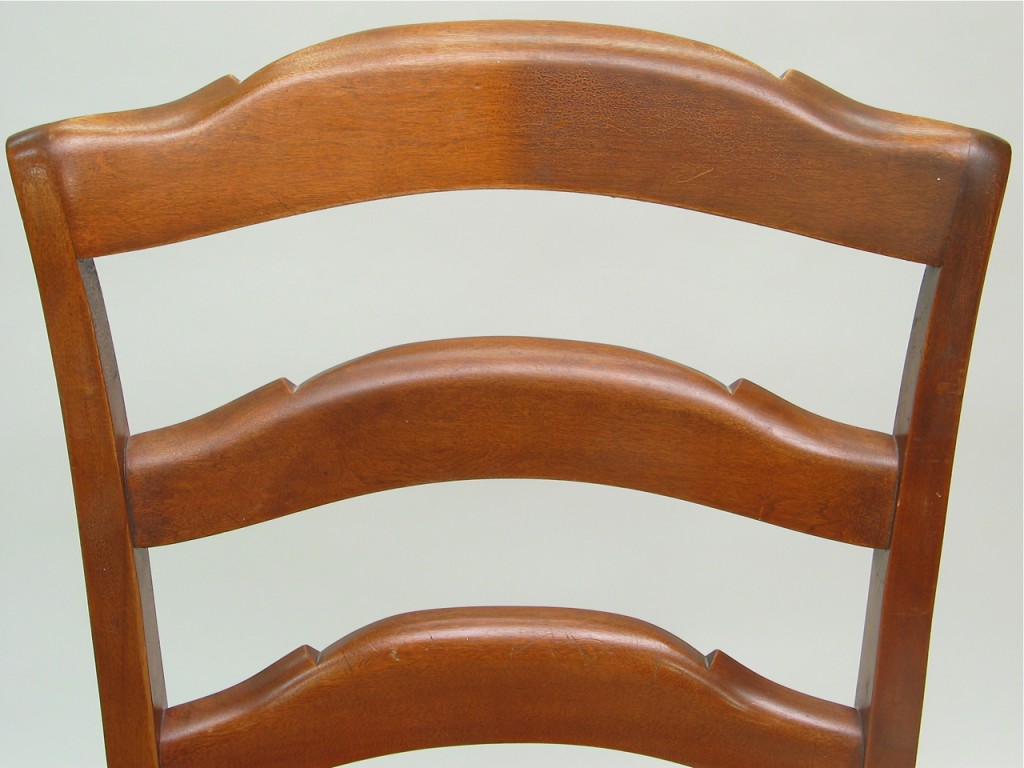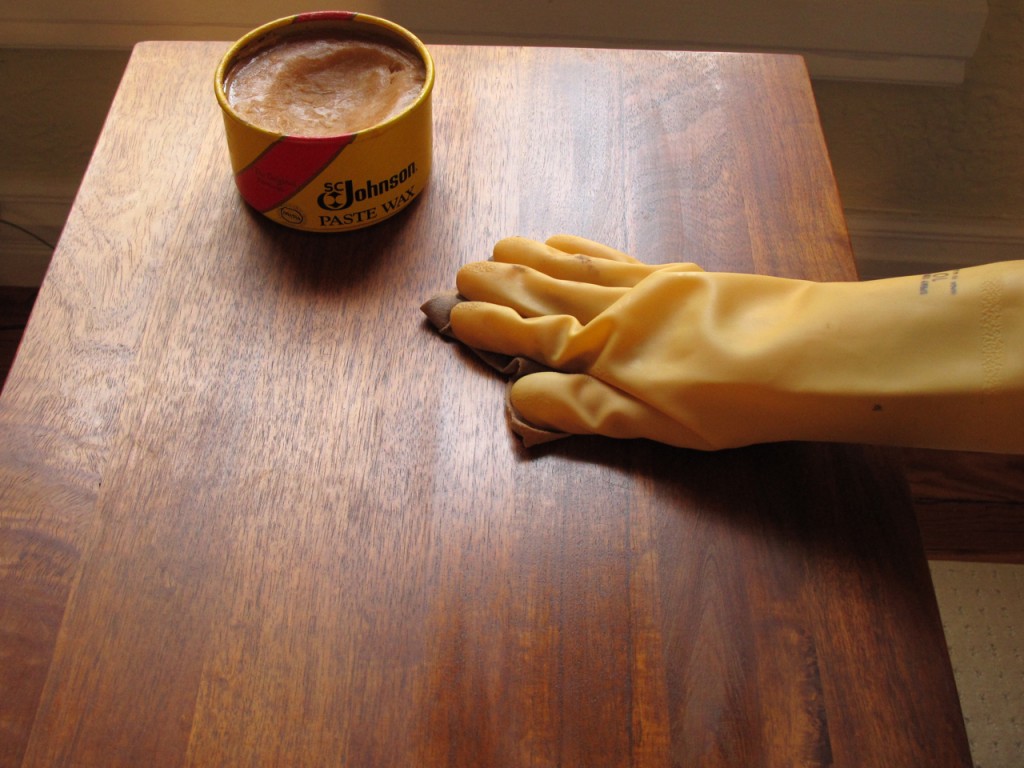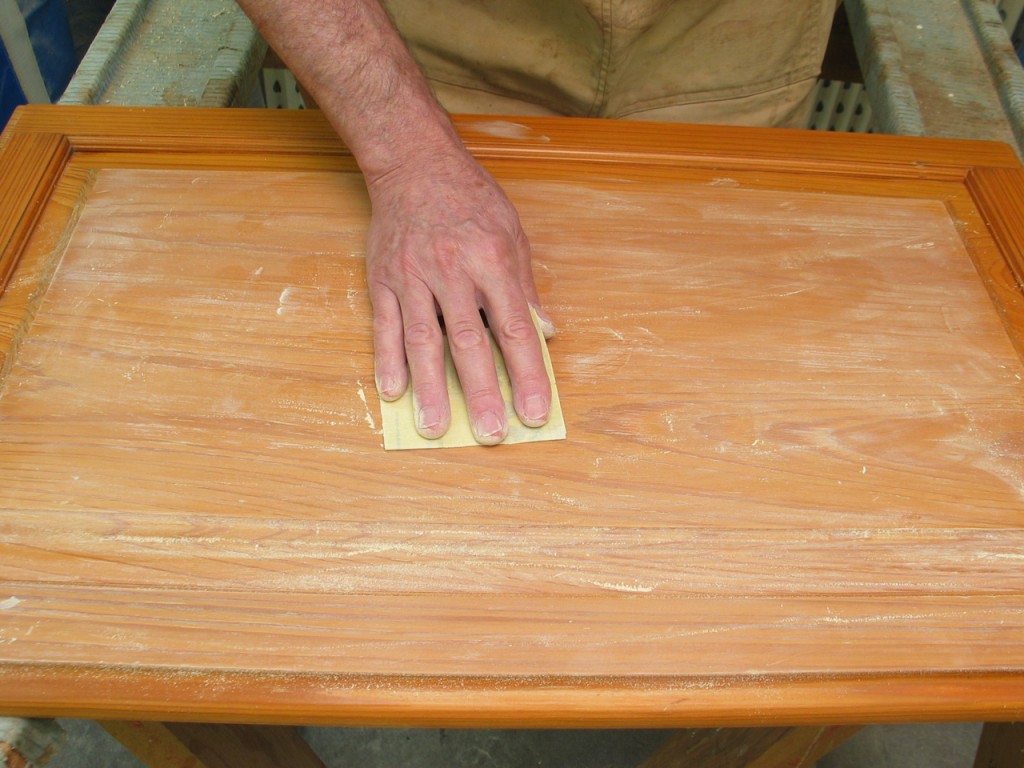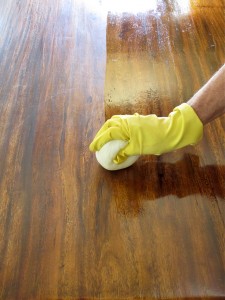We may receive a commission when you use our affiliate links. However, this does not impact our recommendations.
Editors note: Bob Flexner’s blog will move to the Flexner on Finishing Blog at the end of April. You can find it here.

Try cleaning first, with water, soap and water or mineral spirits. Pin this!
Just because a finish is old and deteriorated, you don’t necessarily have to strip it and apply a new finish. You may be able to rejuvenate the finish so it looks new or at least is presentable. It’s often worth a try before starting to remove the finish.
Just as there are different levels of deterioration, there are different levels of repair. Here are three, moving from least intrusive, effective and difficult to pull off to most intrusive, effective and difficult to pull off.
Clean the Surface
Sometimes great improvement can be achieved simply by cleaning (as I’ve done to the left side of the crest rail on a chair shown above, that had been in storage for many years). There are two types of dirt, water-soluble and solvent (paint-thinner) soluble, so you may need to use both types of cleaner. You can add soap to the water.
Cleaning won’t remove finish in good condition, but it will remove the dirt. And sometimes that is the major problem.
If the cleaning removes all the finish down to the wood, the finish was totally deteriorated and should be replaced with new finish to protect the wood.
Apply Paste Wax
Paste wax is the best furniture-care product for dull and deteriorated finishes because it adds shine, doesn’t highlight cracks as liquid products do, is fairly permanent, and wax is fully reversible – meaning that it can be washed off with mineral spirits without damaging the finish underneath.
If there are lighter colored nicks and scratches, you can use a colored paste wax to color these in. Many imported brands of paste wax are available in colors.
The easy way to apply paste wax to large surfaces is to put a lump of the wax inside a twisted cloth and wipe it over the surface. The cloth will limit the amount of wax you are depositing so you won’t have to work so hard to remove the excess.
When the shine of the applied wax disappears and the wax develops a noticeable resistance when rubbed, rub off all the excess with a soft, clean cloth. Keep turning and changing the cloth so you aren’t just smearing the wax around; you are transferring it from the finish to the cloth.
Abrade the Surface and Apply More Finish
If the finish feels rough because it is beginning to craze and crack, you can abrade it smooth, then apply paste wax or more finish on top. Sandpaper is best for leveling the surface. Steel wool and abrasive pads merely round over unevenness.
Abrading removes the top surface of the finish, which serves doubly to clean dirt. Don’t abrade through any color, whether in the wood or in the finish, or you may lose control and end up having to refinish.
Always use a sandpaper grit that removes the problem efficiently without creating larger than necessary scratches that then have to be sanded out. Generally, you would use either 400-grit or 600-grit sandpaper. You can sand the finish with dry sandpaper, in which case the sandpaper may clog if the finish is still supple, or you can use an oil or mineral spirits lubricant to prevent the clogging. The problem with using a lubricant is that it will be more difficult to see what is happening.
When the surface is smooth, you can apply more finish on top. The only finish that could cause problems is lacquer, or any finish that thins with lacquer thinner, because the lacquer thinner could cause the remaining old finish to blister. The easiest finishes to use are wiping varnish or shellac for a gloss sheen or gel varnish for a satin sheen.
Fall-Back Solution
If none of these techniques work to your satisfaction, you may need to strip the old finish and apply a new one. Stripping is always better than sanding because sanding to the wood can’t help but remove the color changes (patina) and nicks and scratches that give old furniture its character.
Remember that it’s always best to keep the finish on old furniture in good condition so the furniture survives.
Here are some supplies and tools we find essential in our everyday work around the shop. We may receive a commission from sales referred by our links; however, we have carefully selected these products for their usefulness and quality.












